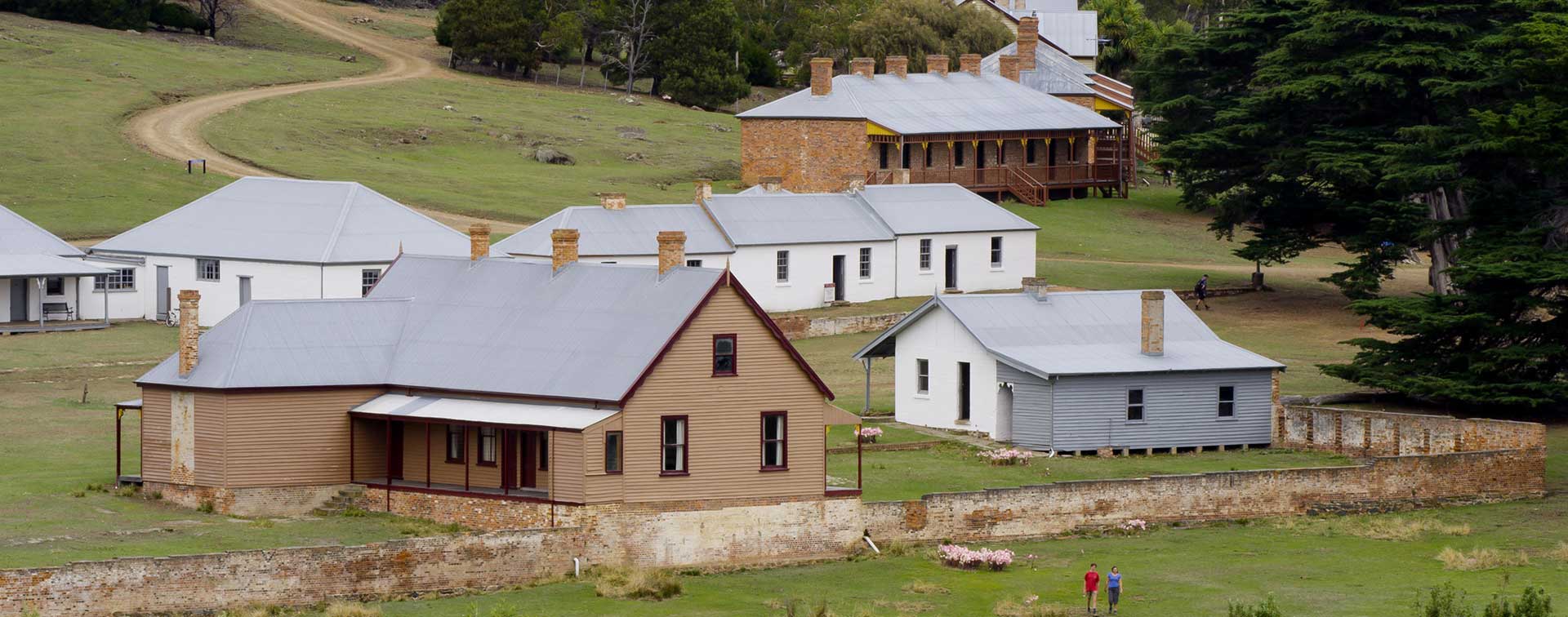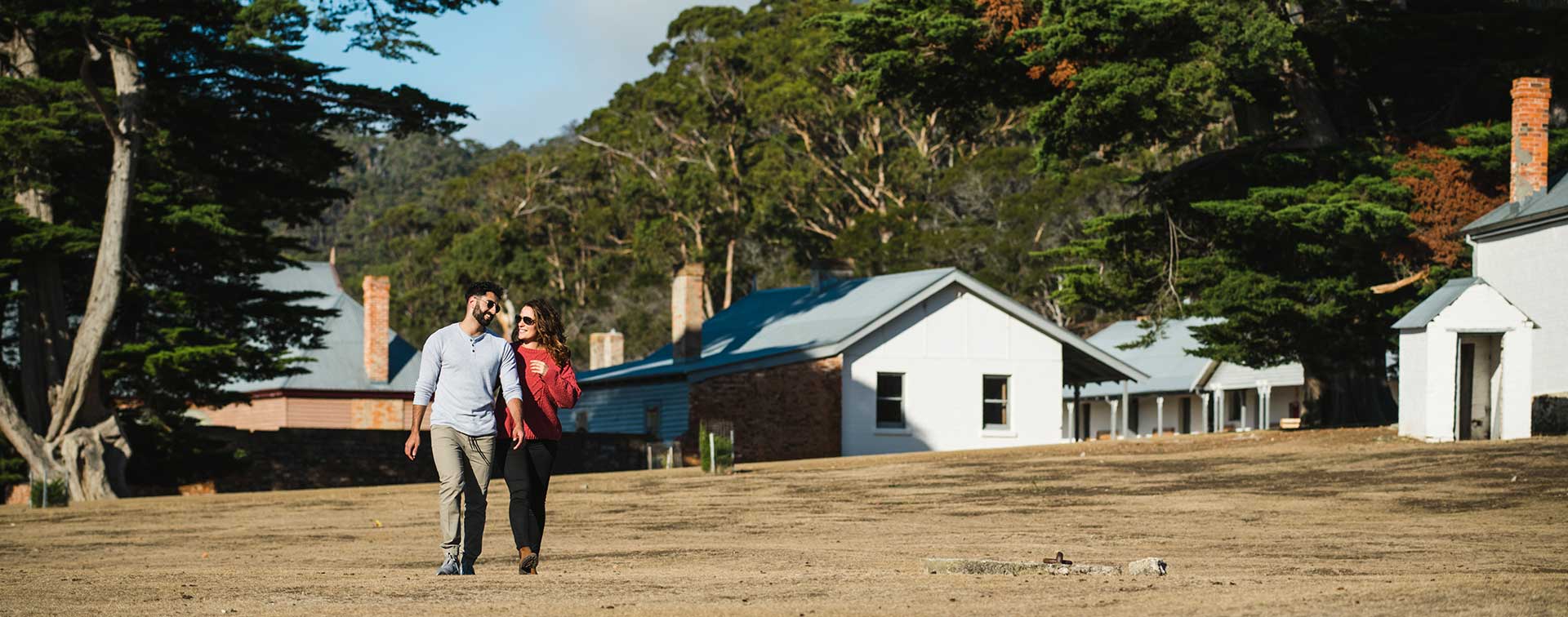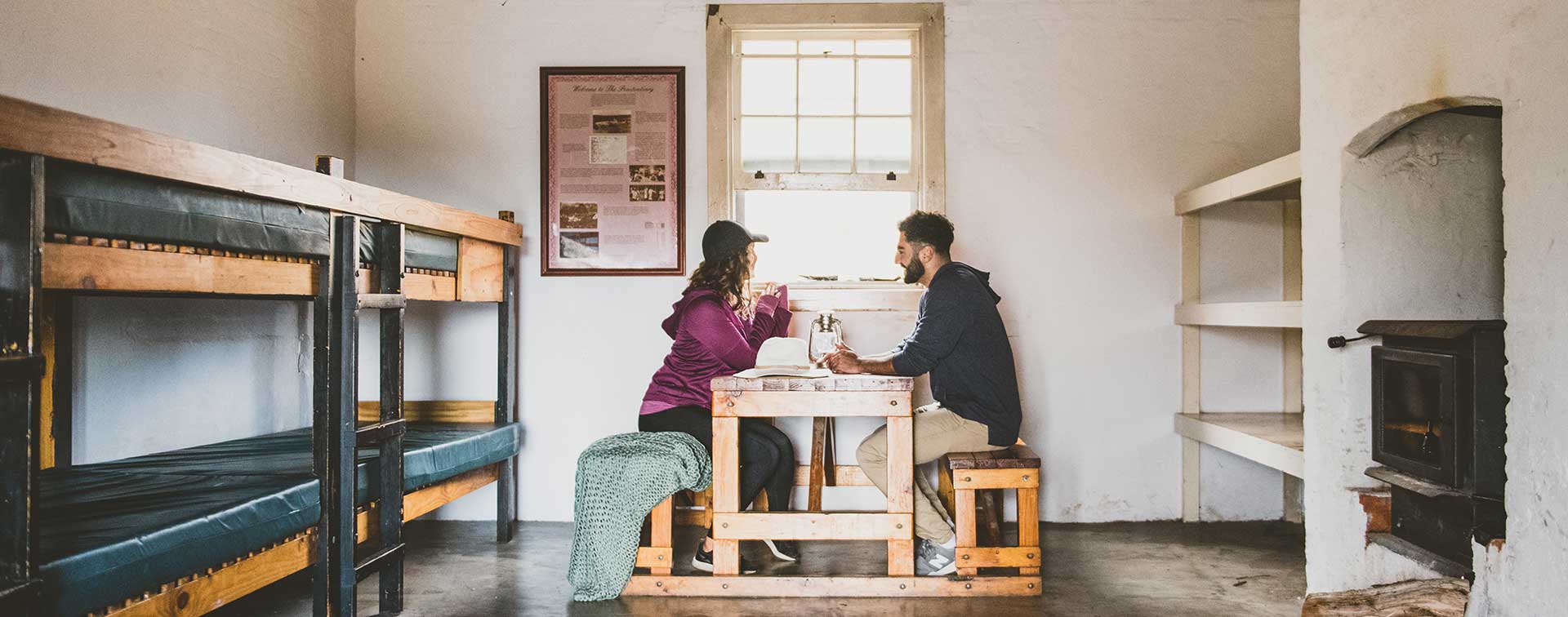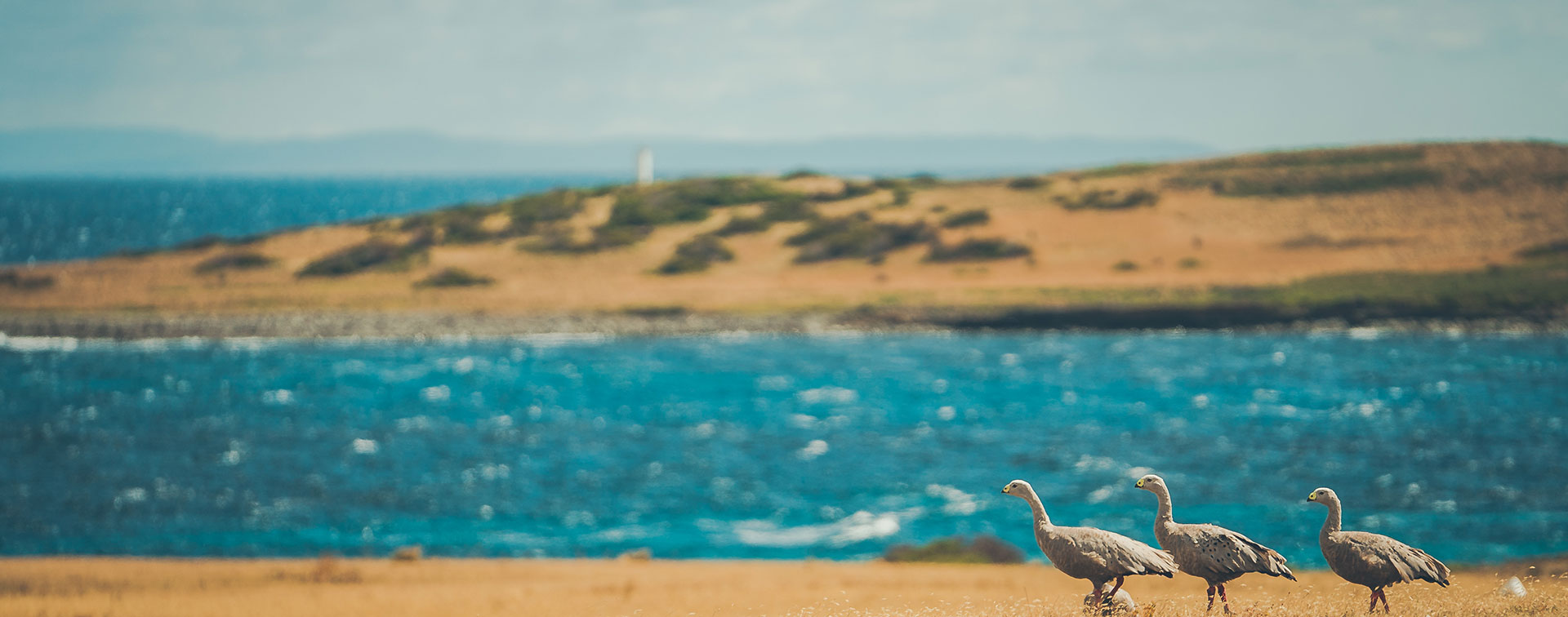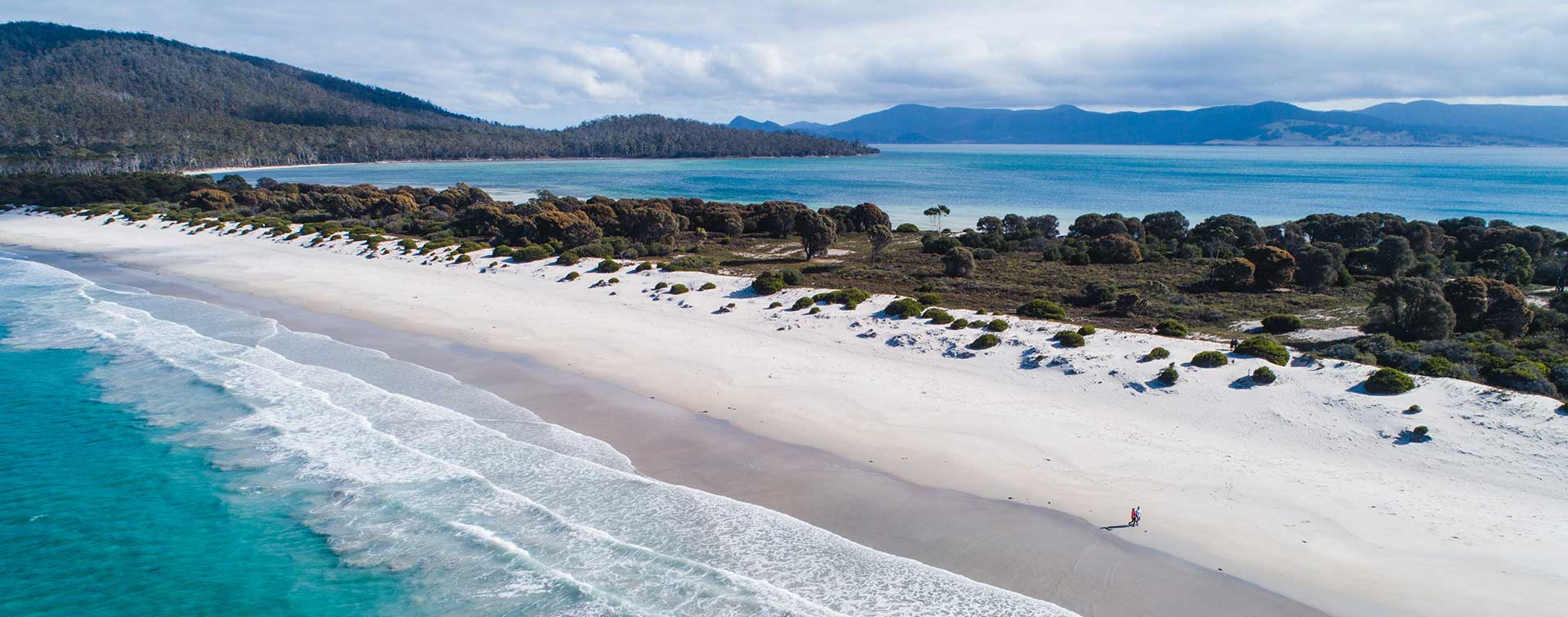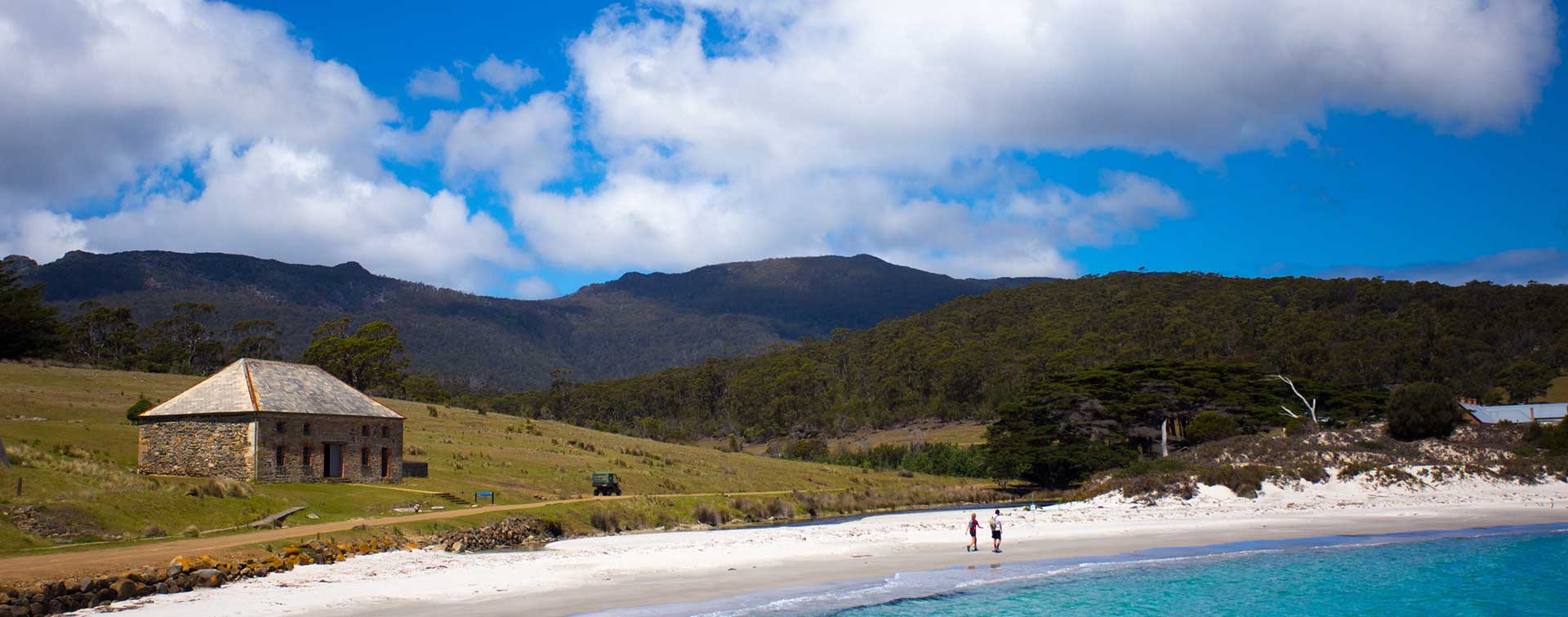Maria Island Penitentiary Accommodation
Maria Island National Park is unique, being part of a convict probation station, which is one of 11 historic places, that together form the ‘Australian Convicts Sites World Heritage Property’. It is an escape from the real world into the past with no shops with only ranger vehicles. Discover the many layers of human history and get up close to the abundant wildlife. The historic Penitentiary originally housed convicts from 1830. Today it provides basic bunkhouse – style accommodation in 9 rooms with 6 beds and 1 room with 14 beds.
Facilities
Toilets, rainwater tanks and a communal mess hall (with lighting, power for charging small devices ie. phones and cameras and a kitchen including gas cookers and sinks) are adjacent to the penitentiary. Visitors to Maria Island National Park are advised that due to infrastructure repairs on the island, the public showers at Darlington Campground are expected to remain closed until 2025.
Checklist of things to bring
- Bedding
- Pots, pans and cooking implements
- Crockery and cutlery
- All of your food requirements (there are no shops)
- Torch or lantern (candles are not permitted)
- Esky (fridges are not provided)
Note: You can transport your gear in a trolley from the jetty to the Penitentiary, 500m away.
Arrival and Departure
- Strict check-out time of 10am · Strict check-in time of 2pm
- Use the Laundry room to store your luggage in before and after checking in if required
- Trollies are available from the Darlington Jetty to assist in transporting your gear to the Penitentiary, 500m away.
Things to do
There is so much to do we recommend a stay of at least two nights to make the most of your trip.
- There are great tracks for walking and cycling – bring your own bike or hire one including helmet to ride south to explore the isthmus
- Climb Mt Bishop and Clerk and Mt Maria
- Photograph the wildlife and heritage buildings
Need more information?
For more information on the Maria Island National Park Ph 03 6123 4040 or visit www.parks.tas.gov.au or email MariaIslandEnquiries@parks.tas.gov.au.
Ferry Timetable
The ferry sails to and from the island multiple times a day. In peak periods additional sailings will be made available. These times will occur automatically online. All departures are subject to demand and safe sailing conditions. Tickets must be presented when boarding at Triabunna and on the return leg from Maria Island. Please note what time the last ferry departs Maria Island. There is no provision for food supply on the island and no guaranteed overnight accommodation unless previously arranged. Bookings are now open for travel until the end of March 2024.
Bookings
For all Penitentiary bookings, click on the Bookings button below. Payment must be made in full at the time of booking. It is possible to book up to 6 months in advance. Each room has bunk beds with covered mattresses, a wood fired stove for heating (wood provided during winter months only) and a table and seats, however there is no power, running water, locks or lighting in the rooms – you will need to bring your own equipment as per the checklist above. Candles are not permitted. Emergency Procedures are posted in each Penitentiary Room so you and all members of your party are advised to familiarise yourself with the Procedures on arrival. BOOK NOW
